My boss had the corner office. From his lofty vantage point, with it’s windowed walls, he could look out on a large section of the St. John’s river. My office was next to his. One day the Boss had his chair wheeled around and was gazing down the river when one of my employees walked by and commented, “I can’t wait until I get a job where I get paid to stare out the window.” Slowly, very slowly, the chair and its Occupant turned around. “One of the things IBM pays me to do is think. You don’t want to know what I’m thinking right now.” The chair and its Occupant turned back around.
This post is not about poor judgment. It could be, but it’s about thinking.
Don’t just do something, sit there! Think!
Thinking has been on my mind recently. I guess I’ve seen too many bright managers (who know better) avoiding the hard work of thinking, or confusing thinking and feeling (both are valid and important human processes; they’re just not interchangeable).
And we must study through reading, listening, discussing, observing, and thinking. We must not neglect any one of those ways of study. The trouble with most of us is that we fall down on the latter — thinking — because it’s hard work for people to think. – Thomas Watson, IBM Archives
How often do you think about how you are thinking? If you’re like me, the answer is not very often. Yet, how we think matters a great deal to the outcomes from what we are thinking. In his best selling book from 2005, Blink, The Power of Thinking Without Thinking, Malcolm Gladwell explored human mental processes (“thin-slicing”) that work rapidly and automatically from relatively little information. He argued that our spontaneous choices are as good as, or better than, our well considered decisions. Gladwell is an excellent writer and his remarkable series of anecdotes are as entertaining as they are engaging. Yet, somehow, Gladwell left me somewhat troubled as he built (and overstated) his case. The thick-slicing parts of our brains do heavy lifting and ask/answer hard questions that thin-slicing (intuition, first impressions, imagination, or reptilian brain processes) simply cannot answer. He may have given many of us an excuse to avoid the aforementioned hard work of thinking.
Consider critical thinking, which clarifies goals, examines assumptions, discerns hidden values, evaluates evidence, accomplishes actions, and assesses conclusions. According to criticalthinking.org it is “the discipline of rigorously and skillfully using information, experience, observation, and reasoning to guide your decisions, actions and beliefs. Critical thinking is the intellectually disciplined process of actively and skillfully conceptualizing, applying, analyzing, synthesizing, and/or evaluating information gathered from, or generated by, observation, experience, reflection, reasoning, or communication, as a guide to belief and action.
How about strategic thinking, which involves the general themes of creativity, exploration, and understanding discontinuities? It has five major attributes. The first is a systems perspective, or having the big picture of the complete system of value creation from beginning to end, and understanding the interdependencies within the chain. Secondly, it concerns being intent focused which allows us to focus attention, to resist distraction, and to concentrate for as long as it takes to achieve a goal. Third is hypothesis driven, which is important in today’s environment of ever-increasing information availability [overload?] and decreasing time to think. The ability to develop good hypotheses and test them efficiently is critical. Fourth is thinking in time, or connecting the past with the present and linking this to the future. Finally, intelligent opportunism, the idea of openness to new experience which allows us to take advantage of alternative strategies that may emerge as more relevant to a rapidly changing business environment. Who has time for all that?
Thinking is no substitute for doing. It is an antecedent. Oliver Wendel Holmes notes that one must invest the effort in thinking and clarifying:
I would not give a fig for the simplicity on this side of complexity, but I would give my life for the simplicity on the other side of complexity.
…and be rigorous and intentional in the effort of doing:
To reach a port we must sail, sometimes with the wind and sometimes against it. But we must not drift or lie at anchor.
Today’s unforgiving and complex business environment requires excellence from owners and executives. “Wishin’ and hopin’ and prayin'” is no substitute for critical thinking in analyzing and solving key business problems, or for strategic thinking in charting direction for the future. Don’t just do something, sit there. Think.
In Other Words…
“The problem isn’t that Johnny can’t read. The problem isn’t even that Johnny can’t think. The problem is that Johnny doesn’t know what thinking is; he confuses it with feeling.” – Thomas Sowell
“It isn’t that they can’t see the solution. It is that they can’t see the problem.” – G.K. Chesterton
“The best way to have a good idea is to have a lot of ideas.” – Linus Pauling, Nobel prize-winning chemist, 1954
Several quotes from Thomas J. Watson, Sr., founder of IBM:
- “Analyze the past, consider the present and visualize the future.”
- “Follow the path of the unsafe, independent thinker.”
- “The trouble is that men very often resort to all sorts of devices in order not to think, because thinking is such hard work.”
- “What every business needs is more people who think.”
- “Think. Think about your appearance, associations, actions, ambitions, accomplishment.”
“Nothing limits achievement like small thinking. Nothing equals possibilities like unleashed thinking.” – William Arthur Ward
In The Word…
“For as he thinks within himself, so he is.” – Proverbs 23:7a






